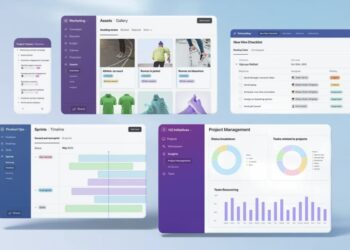
For the over-30 crowd, starting or rebooting a career in tech might seem daunting. It’s a sector that seems more enamored with youth than most; do those with more life experience than technical know-how stand a chance?
The answer is yes, of course; but there are some things to keep in mind. It’s not going to be a fairytale career change, but it won’t be as rough as you might fear. We’ve got a few tips to help the 30-plus crowd start (or jump-start) their tech career.
Know Your Stuff
This should go without saying, but if you want a job in tech, you’ll have to know your stuff. Employers often do whiteboard interviews or provide take-home assignments to ascertain if you’re technically proficient for the job.
Your best bet here is to learn a specific language and the major frameworks supporting it. Even then, you’ll have to be really proficient. Knowing a specific skillset within a language or framework is great, but employers want to know you’re not a one-trick pony.
An example: you may have started a career in tech because you were passionate about creating better music streaming services. It’s niche, and you’ll have to know more than whatever ‘audio kit’ your language or framework of choice supports. For instance, streaming services rely heavily on mobile apps, so you’ll need to be familiar with iOS, Android, and the languages and SDKs behind them.
Concentrate on one particular discipline (such as web development), but don’t get so focused you miss opportunities when it’s time to job-hunt.
Network
In-person networking can be tedious and terrible, but sometimes necessary. Digital networking is similarly bland and boring, but no less critical.
We suggest starting digitally, via social networks. Follow developers with careers you aspire to, and ones who may be learning or just starting out (like you!). People tend to tweet and share more via social media than in person. Finding local people in tech is also smart; they’re the ones who will post about meet-ups in the area.
When engaging, remember that positivity gets you places. If you’re negative or otherwise rude, people will simply distance themselves from you. And the tech community is small, even in huge places like New York or Silicon Valley.
Have an Online Tech Presence
In addition to digital networking, you’ll want to be easy to find.
This doesn’t mean posting your phone number online, but you should have profiles in places where people will look for developers like you. Naturally, we’ll point out a Dice profile is critical to finding work in tech, so please be sure yours is filled out completely.
But LinkedIn is also important. For most, it serves as a sort of online résumé, and employers often use it as a cross-reference, so be sure it’s up to date.
GitHub is also a good place for tech pros. Even if you don’t have projects hosted there, using Gists is a great way to show you’ve built a quiver of code snippets ready for use in projects.
One of the more overlooked (and under-appreciated) digital footprints is a blog. Beyond all other places, this is the best place to display your technical knowledge. A blog post about using a tool, framework, or language hack is a simple way to show you know what you’re talking about. It’s a great thing to show recruiters and interviewers to ease their minds.
Take Side Projects
There are plenty of sites for freelancers, and we suggest spinning up a profile on sites such as Upwork to see if you can land a side job. If you’re a bit more proactive, Freelancer is a good place to find freelancing gigs in tech.
A bit of warning: Many freelancing sites ask you to bid on jobs, and it’s a race to the bottom. We don’t advocate using this as a means of supporting yourself. It can serve as a way to learn-while-doing, though.
Finished projects can also be hooks for recruiters and hiring managers in tech. Even if you were part of a larger team, being able to discuss work you did on a project gives them insight into your skillset. You can also mention your projects on your website or blog.
The Tech Elephant in the Room
Tech ageism is real. It exists, and it sucks, but it’s something you’ll have to deal with.
So how do you deal with it? In a way, you don’t. If you follow our guidelines above, it’s a blueprint for showing your skillset rather than your age, which is what really matters to most hiring managers. They want to know you can do the job, and being older than most pros in your position shouldn’t be a factor once you’re at your desk.
You should also be open about your age, and why you’re starting or re-starting your career. You’ll probably have to explain yourself more than some fresh-faced college graduate, but you don’t deserve the job any less than them.
Life experience can translate to tech, so find talking points that correlate to your experience with side jobs, GitHub repos, and learning a new skill. A Reddit thread on this topic touches on diligence, too. You might not land the job you want, maybe because of ageism, but you can’t give up!
Besides, you’re going to spend a lot of time staring blankly at a monitor, wondering why code doesn’t work. You don’t need to be 23 years old for that.
source:-insights.dice







